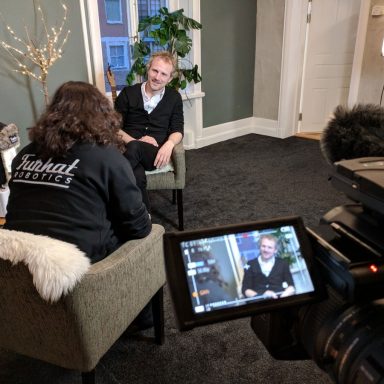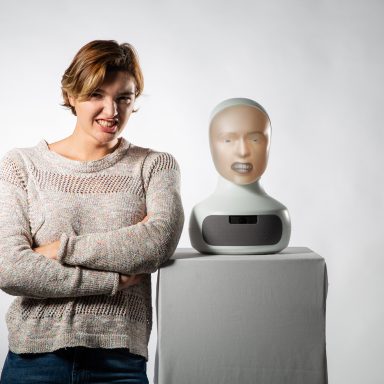Customer spotlight
Developing long-term robot interactions
Furhat is used to explore how to create long-term relationships between humans and robots.
The research focus
At the Relational Agents Group at Northeastern University in Boston USA, Professor Timothy Bickmore and his research group conduct basic and applied research on the development of Relational Agents, especially in the area of health counselling applications.
The researchers mainly use the Furhat robot for coaching, counselling and psychotherapy, studying how we can build robots that can interact with one or more people over prolonged periods and develop social-emotional relationships with these users.
Example projects include a couples counsellor robot that promotes positive communication behaviour in romantic couples, a robot that functions as a public speaking coach, and a robot facilitator for business meetings.
How Furhat contributes
Furhat can easily change the attention, facial expressions and tone of voice by just a click. In combination with creating complex dialogue structures with state of the art Natural Language Understanding, the researchers can evaluate the efficacy of the robot in facilitating counselling interactions with one or more users.
About the lab
The Relational Agents Group, led by Professor Timothy Bickmore, is focusing on simulating face-to-face counseling, primarily in health education and health behavior change interventions. Their specific focus is how these types of interactions develop over time.



